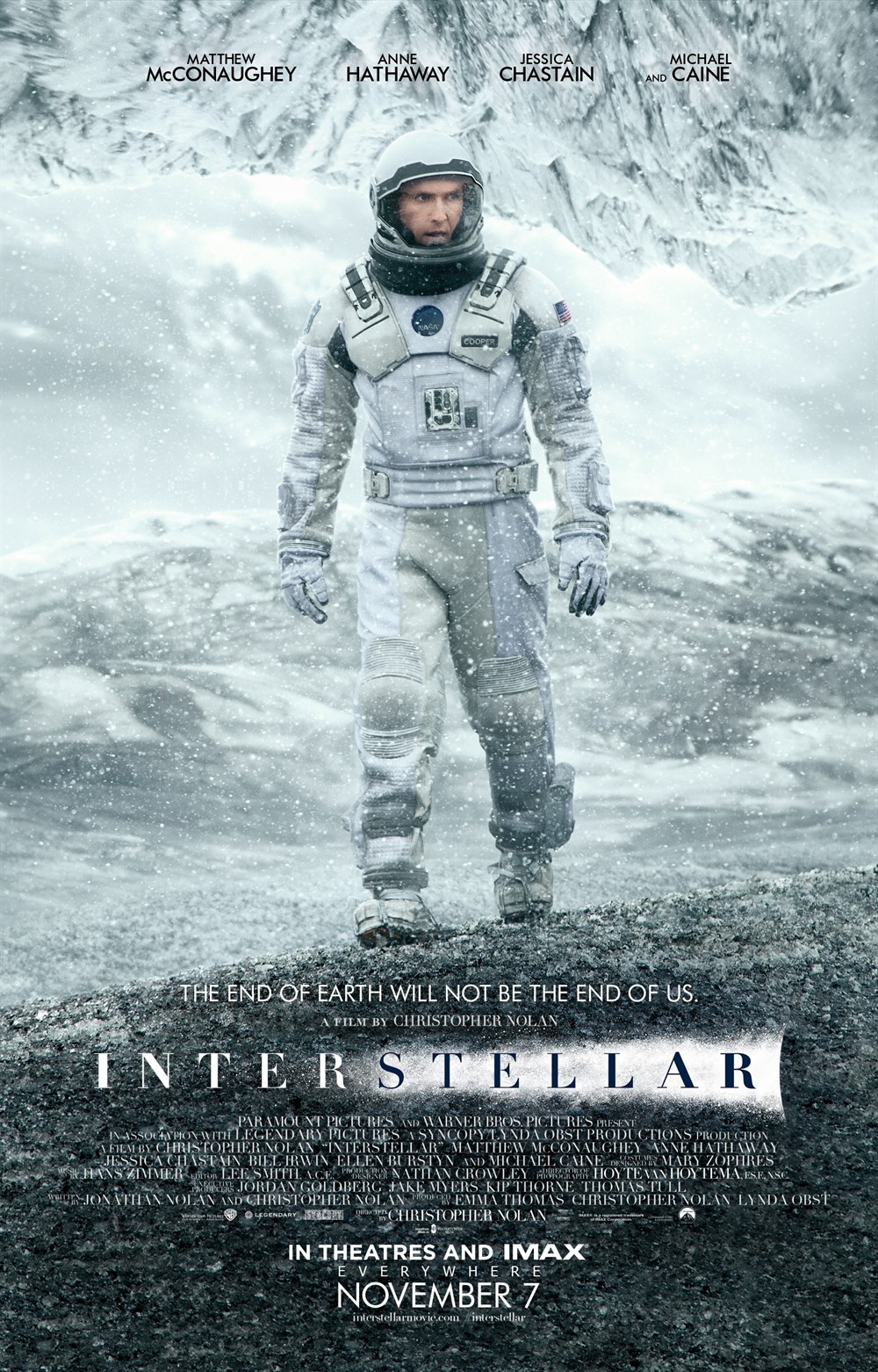Somewhere in Christopher Nolan’s Interstellar, among all the talk of quantum physics, relativity, gravity, black holes, and the space-time continuum, is a movie about family and love and perseverance. Whether you’re able to find it makes a big difference in whether you walk out of the theater rolling your eyes or if you emerge convinced you just witnessed one of the more epic and groundbreaking films of the year.
Nolan, back in the director’s chair for the first time since 2012’s The Dark Knight Rises, has said repeatedly that Interstellar is his homage to Kubrick’s 2001: A Space Odyssey, and that fact is crystal-clear almost from the get-go. Interstellar is epic, deliberate (without dragging), and bends everything you might think you know about space travel. It has its flaws, to be sure, but there’s no denying its scope and its ability to take you to a far a way place, if only for a few hours.
Matthew McConaughey is Cooper, a former astronaut who spends his days farming in a not-too-future America, as the world slowly continues to cannibalize itself. Wheat doesn’t exist anymore (because of blight), and okra is going fast. The global population is a fraction of what it once was, and we’re one generation away from total extinction. Bleak stuff indeed, but it turns out NASA, after being literally forced underground, has been working on a solution– researchers have discovered a wormhole near Saturn, a portal to a distant galaxy that shows signs of promise for colonization. Cooper, naturally, is called on to pilot the mission, along with Brand (Anne Hathaway), Doyle (Wes Bentley), and Romilly (David Gyasi). There are also two wise-cracking robot compadres along for the long ride.
The almost-three-hour movie is fairly neatly split into three parts: the introduction, where we meet the widower Cooper and his two kids, neither of whom are too keen on daddy going away to space for heaven-knows-how-long, leaving them with their grandpa; the space trip, as the crew takes a two-year trip to the Saturn wormhole and then explores surrounding planets; and then the resolution, when the movie finally begins its shift inward, and words like “love” and “family” take center stage. It’s an exquisite melting pot of a story (credit to Nolan’s screenwriter brother Jonathan) that falters only rarely.
I’m obviously not qualified to utter a “yeah, but” to renowned theoretical physicist Kip Thorne, who not only consulted on the movie but served as executive producer, so I’ll let the doctoral candidates of the world debate the properties of black holes and event horizons. There were, however, a couple of non-Thorne moments in the film that were more than a little distracting, including an out-of-nowhere cameo (or two) that shook me right out of Interstellar mode and into “Hey, isn’t that…?” mode. And Hans Zimmer’s often-jarring score sounds more like Philip Glass than anything Philip Glass has ever composed. That’s not a compliment.
The Anne Hathaway haters of the world won’t have their mind swayed any by here performance here, which seems to be just a further extension of the insufferable (and weepy) character she always seems to play. McConaughey, however, keeps his wining streak in tact with a commanding performance; how this is the same fella who wooed Kate Hudson in Fool’s Gold is almost as mind-boggling as Hathaway winning an Oscar for Les Miserables.
Interstellar isn’t a perfect film, and (speaking of the Oscars) its award buzz seems to be dying by the hour. But don’t let the nay-sayers sway you. There’s plenty to admire here, and even more to amaze you. It may not be as stellar as you hoped, but it’s very much a ride worth taking.
4/5 stars
